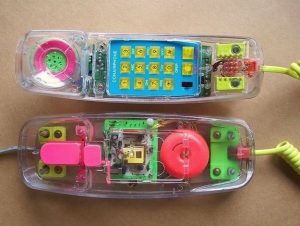"It's still magic even if you know how it's done." -Terry Pratchett, A Hat Full of Sky
I wasn’t a fan of “technology" for my twenties and most of my thirties. It struck me as annoying and more frequently interfered with my relaxation response (it’s a thing!). In the mid-2000s, it wasn’t required or even totally necessary to own a personal computer or have home internet, so I didn’t. I’m saving money, I thought! Yay. I’ll go to the library to check my social media account once a week, maybe my email, print off whatever I needed for my classes and that was about it. https://lplks.org/office-center/
I loved paper books (according to a brief search on the library's website we have 150,000+), paper magazines, and newspapers. Paper, people!! Things I could lend and re-lend if bought outright (or be lent to me at the library) through a span of decades, even.
However, it started to become increasingly clear that I had to accept "it" (you know, technology/computers/blah, blah, blah) and work with the change. For example, the White Pages are no longer printed, most businesses direct you to their website when you have a question, and still yet, a lot of events are being held online. I won’t mention the “p” word. We’re all so sick of it by now and would preferably see the last year as some kind of freaky hallucination, right?
So, how did I finally accept this new and unruly beast, what I viewed as the Bane of Tech, and learn more efficient ways to navigate? Pretty much the same as any other important life skill: time and effort. The actual caring came later, as I saw how it improved my work. Of course, I desperately miss the “good old days” where if you weren’t next to your landline phone, no one expected you to respond quickly. And if that meant meeting up with a friend another day because things changed last minute, well then that was what we did!
While understanding how to use basic technology is an ever-increasing necessity, Matt Haig, an author whose books I’ve been absorbing like water to peat moss, states in Notes on A Nervous Planet, "How can I stop my mind being overloaded when the world is overloaded? We can think about anything. And so it makes sense that we end up thinking about everything. We might have to, sometimes, be brave enough to switch the screens off in order to switch ourselves back on." I promise you're not alone in the seemingly Sisyphean struggle that is the 21st-century thus far.
For another illuminating read on what it means on the macro-level to be in moral and social infancy in the digital age and what online health and community dialogue could look like, check out The Atlantic's April 2021 article "How to Put Out Democracy's Dumpster Fire". It's a longer read but beautifully hopeful despite the darker truths.
Let's make the technology work for us, not the other way around. All taken in small steps, of course. But the first part is acknowledging that yes, this is a thing I will need to navigate. I used to wear my stubbornness in avoiding technology like a proud, and ultimately ignorant, badge. But if I didn’t learn, then I would consistently find myself half-adrift in a sea of confusion, asking others around me for help, and I didn’t like that either.
It’s a process that reaps benefits: efficiency, not having to ask others for help (as much), and finally being part of the collective “we” that has effectively given tacit (and perhaps sometimes haphazard) agreement to this strange new reality. Sigh. I know...change. We can embrace and lament the change, simultaneously. I think of Larry David’s quote, “Let’s go upstairs and all get under the covers and sob.”
-Theresa Bird is an Information Services Assistant at Lawrence Public Library.



Add a comment to: Still Magic